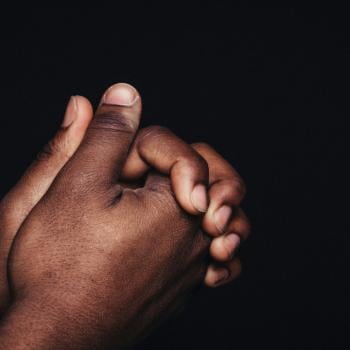Lectionary Reflections
Ruth 1:1-18
November 4, 2012
When I was in graduate school, a hundred years ago or so, a Hebrew class I took focused some of its attention on the book of Ruth. It is a short book, written in very clear and relatively simple Hebrew, just perfect for those of us who had moved beyond the beginning stage of reading the language, but not as difficult as pieces like the Psalms or Job. It made us feel proud that in the main we could read the book.
And it was a rather good read, like an afternoon soap opera, we men all thought (the class and its teacher were all male), describing the love story between the foreign widow Ruth and her Israelite admirer Boaz. I read it and promptly forgot it, moving on to hardier fare like Job. Looking back on those days, I now wonder at just how clueless I was about this astonishing story.
Some years later, Phyllis Trible published a book, God and the Rhetoric of Sexuality. In that book was an article on Ruth, an article that opened my male eyes in ways I hardly can enumerate. I learned from Trible that the book I thought I had read in that graduate class was something altogether different and more wonderful than I had imagined. It was a book about a woman and women, a book quite explosive in its claims, promulgated in the midst of a thoroughly patriarchal culture. As a result of Trible's reading of Ruth, the book has become for me one of the greatest of biblical works. During my early pastoral ministry, I do not think I used Ruth as a source for a single sermon. I am very sorry for that omission now, because the book has wonders that need hearing in every age and time.
It begins simply enough. "In the days when the judges ruled there was a famine in the land" (1:1). The canonical scripture has just concluded the book of the Judges with this terrible sentence: "In those days there was no king in Israel; all the people did what was right in their own eyes" (Jdg. 21:25). Anarchy reigned; life was cheap. The book of Judges is characterized by horrific acts of kingly murder (so Ehud's grisly killing of Eglon in Jdg. 3); of the brutal slaughter of a would-be king by a well-aimed millstone, hurled by a furious woman (so the death of Abimelech in Jdg. 9); of the wanton assaults of Samson on his own people and on the Philistines, culminated by his complete obliteration of the enemy and himself under the ruins of Dagon's temple (Jdg. 16); and finally of the barbarous abuse of a lone woman by a host of bestial Israelites, resulting in the near extinction of one of the tribes of YHWH (Jdg. 19). The book of Judges could be summarized in the phrase "crazy, murderous, and lusty!" And in that cauldron of horror the story of Ruth is found. It makes a reader wonder when the next corpse is to appear.
But that reader would be wrong. The tragedy here is a famine, a not uncommon occurrence in the southern deserts of Israel. As a result of the famine, a typical Israelite family of four is forced to leave their home and move to Moab, a tiny place east of Bethlehem, across the Dead Sea, and higher in the mountains. But the tragedy of a lack of food is soon matched by a more familial tragedy. The husband and father of the tiny band, Elimelech by name, dies, and the woman, Naomi, is left a widow, a fearsome thing to be in a patriarchal world. Still, she has her two sons and thus is somewhat protected by their male presence. They soon marry Moabite women. But after some further time, both sons die, and what remains are three widows, two of whom are foreigners. Here is a famine indeed in a place where men call the tune.
After ten long years, Naomi hears that the famine has finally ended in Israel, and she resolves to go home; there is finally nothing for her in this land of Moab. Surprisingly, her two daughters-in-law decide to go with her. Naomi at first gently suggests to them that though they have been exemplary in their behavior during the multiple tragedies that have struck the family (1:8), there really is no future for them in Israel. "YHWH grant that you may find rest ["security" reads the NRSV], each of you in your husband's house" (1:9).
But Orpah and Ruth will have none of it. "We will return with you to your people," they both say (1:10). But Naomi is insistent that she return to Israel alone. She proceeds to spin out the law in Israel of Levirate marriage, the details of which may be found in Deuteronomy 25:5-10. In short, this law stipulates that when a married man dies, a close relative, usually a brother, but a cousin if no brother is available, is to marry the widow in order to keep the male line going. It is a law both protective of a single woman and indicative of a culture steeped in male dominance; no single woman has much of a chance apart from her connection to a male.
Naomi claims to have no living male relatives (the story will later reveal that she has several), so she spins an absurd scenario wherein she tells Orpah and Ruth that even if she should meet a man on the Bethlehem road this very night, and even if they would marry, and even if she should have sons (hardly likely at her age), would the women wait for these phantom boys to grow up in order for the women to marry them? Why, the two Moabites would by that time be old themselves! Naomi concludes this ridiculous plan, clearly designed to send the women back to Moab and leave her alone, by whining, "It has been far more bitter for me than for you, because YHWH's hand has turned against me!" She fully expects for the two to get the picture and head home to Moab.





